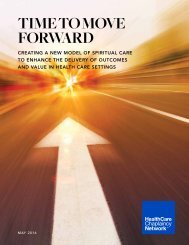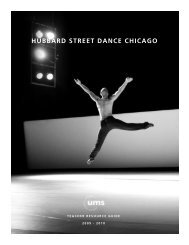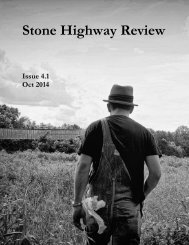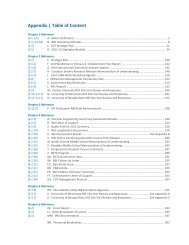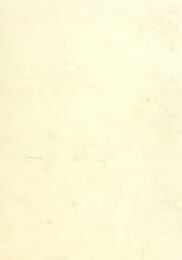Fries
Fries
Fries
You also want an ePaper? Increase the reach of your titles
YUMPU automatically turns print PDFs into web optimized ePapers that Google loves.
ICAME Journal No. 34examples that happen to catch our notice into some location. 9 These examplesmay be bits of conversation that we have heard, whole advertisements or lettersor other texts that have caught our attention, or perhaps it is some text that weintend to use as an example for teaching some topic. Then, when we come tolook for data of some type for our analysis, we search our store of examples andwork with them. I compare this approach to the approach of a person who likesto sew, and collects all sorts of pieces of cloth just in case one might come inhandy. Such an approach to data gathering is something all linguists do, and isquite valuable. I think, for example of Otto Jespersen, who gathered thousandsof examples from an unspecified body of English literature. 10 We cannot replicateor test his work, because we do not know the exact sources he used, and hecertainly did not sample these sources exhaustively. However, the examples hecollected are all valid examples of language in use and he was able to use themeffectively as a basis for his landmark descriptions of English grammar. Howeverexamples gathered informally, as he did, may not represent the full range ofphenomena available, and they are very likely to misrepresent the frequencieswith which certain language features are encountered.An alternative approach to the gathering of data is to systematically gather arepresentative sample of some facet of the language, paying careful attention towhat the sample is intended to represent and also to the techniques used togather the sample. Two examples of careful samples are the old Brown and theLOB corpora which claim to be stratified random samples of written British andAmerican English.Let me follow Matthiessen (2006:107) in using the term archive to representthe informal collection of data which happen to be convenient, and corpus torefer to a more careful sampling of language. With this distinction in mind, <strong>Fries</strong>tried to gather corpora. While this was his goal, I suspect that most of the corporathat he used were compromises. 11 I have already mentioned that he wantedto examine spoken language, and yet he had no means to do so regularly untillate in his life. Thus, his 1925 study of shall and will was based on drama, whichhe considered an approximation of the spoken language. His study of the growthof the structural use of word order excluded poetry in the belief that, of writtenlanguage, poetry deviated most from the spoken language. His study comparingVulgar English with educated English used letters written to the War Departmentduring World War I because that was a convenient source of minimallyedited data produced with limited objectives by educated and uneducated writerswith known backgrounds. Only when we get to his study that was publishedas The structure of English do we find him using recorded material. But eventhat was a compromise in that, because of practical limitations, he had to limit102



